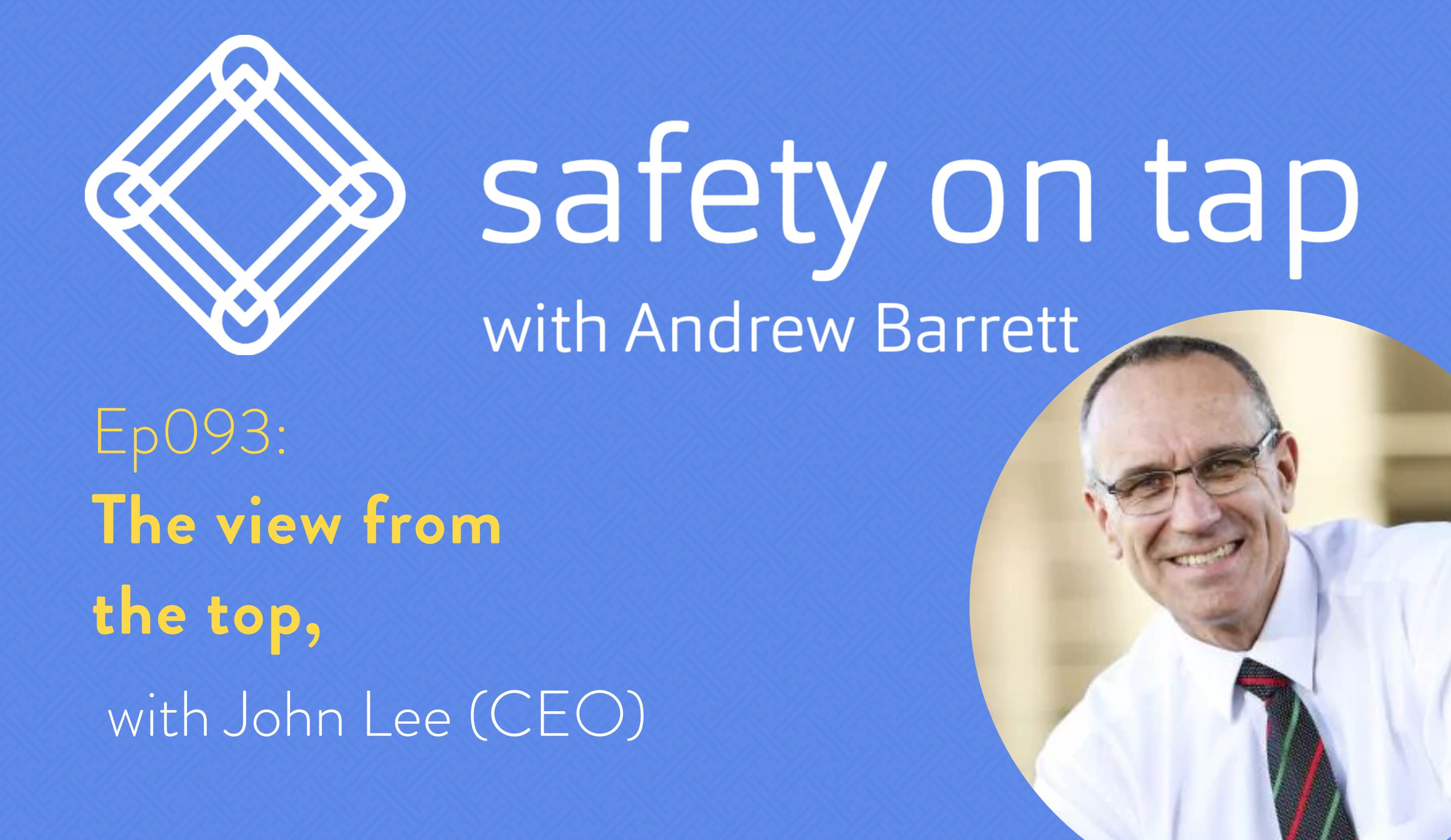Hey, it’s Andrew, and this is Safety on Tap.
Since you’re listening in, you must be a leader wanting to grow yourself and drastically improve health and safety along the way. Welcome to you, you’re in the right place. If this is your first time listening in, thanks for joining us and well done for trying something different to improve! And of course, welcome back to all of you wonderful regular listeners.
One of the things I explore in my chat with John Lee today is the concept of bureaucracy. As you’ll hear, John has been a senior public servant, a bureaucrat, and I was curious to explore the linkage between being a bureaucrat, working in bureaucracy, and the bureaucracy that is so often associated with health and safety. I’ve been speaking with so many of you recently about the things you need help to change, and that’s almost always #1: help reduce the bureaucracy giving safety a bad name and leaving it disconnected from reality. Previous guests David Borys talked about the gap between work as imaged and work as done, and John Green about the philosophical position that safety is an ethical responsibility, not a bureaucratic activity. Well, Dave Provan and I are hosting a one day workshop designed for people like you, who want to reduce and prevent safety bureaucracy. Dave’s research has defined how we can characterize the stuff that helps, and the stuff that doesn’t, and what we can do about it. The one day workshop, called ‘Decluttering Health and Safety’, is all about peer learning and practical action. If that sounds like a good idea for you or your team, find out more at safetyontap.com/clutter, and you might still be able to grab an early bird ticket if you’re lucky. That’s safetyontap.com/clutter
I mentioned John Lee is my guest today. I talk a bit in the interview about him and his history, so I won’t repeat that here, suffice it to say when I met John, I was leaning in, and wanted to get to know him more, so you get to listen in too! Here’s John:
Are you getting value from the podcast? I’d love to hear from you, good or bad, to help me make it even more helpful for you. Are there topics or guests you swipe past or ones you’ve listened to multiple times? I’d love to know. You can leave a review and rating in iTunes, comment on the episode webpage, or send me an email to andrew@safetyontap.com. Thanks to John Evans for sharing some love after episode 92, he said “Great episode and I love the handout and link to the paper for more reading. Keep up the good work”, I certainly will John. Ted thought episode 84 was a great podcast but thought it was overly censored, I appreciate your honesty, Ted. Maria thought episode 88 with Sara Pazel was excellent, and Bec Michalak and I got a resounding ‘hands down best episode yet’ from Drewie. Thanks so much for your feedback, if you haven’t reached out yet, I’d love to hear from you.
Here are my three takeaways from that chat with John Lee:
Takeaway #1: Understand intimately the preferences and styles of the leaders you serve and seek to influence. John gave us an example of the contrast between two Ministers he worked for, with very different styles and preferences in communicating and engaging with him. John himself loves stories, but also needed good data and reporting, so we learned that about him. He also offered the tip to modern-day public sector safety professionals, to know how government will behave. That’s not just for the public sector, that applies to all of us. Knowing and responding to the preferences and styles of our leaders, and understanding the inclinations of our government or board, enables us to anticipate and influence more effectively.
Takeaway #2: What are the big calls you are helping your leaders take? John shared his example of banning mobile phones in bus cabins. He said it wasn’t the most amazing change, but it was important and enduring. How would your CEO, senior manager or the leader you serve, answer the question of what they’ve taken a stand for?
Takeaway #3: It’s not about having the answers, but the questions, the conversations, and ongoing reflection. As a leader, what I took away from the entire conversation through John’s stories, and even how he responded to me, is that he didn’t always have polished, confident responses. How many times did he say, I don’t know?! I suspect that as leaders ourselves, we’ll be better placed if we can have honest conversations with our leaders about what we all don’t know. John’s view of the balance of safety and risk-taking in sailing wasn’t crystal clear, it’s an ongoing conversation and reflection. Maybe we can get more comfortable not having all the answers but engaging in the conversation and reflection with our leaders.
And if you’re keen to learn and apply a research-based approach to decluttering health and safety, check out safetyontap.com/clutter
Thanks so much for listening. Until next time, what’s the one thing you’ll do to take positive, effective or rewarding action, to grow yourself, and drastically improve health and safety along the way? Seeya!
Here’s your FREE download of:
I’ll also send you the links to all the available back-catalogue of reflection templates and transcripts so you can access these at any time.

